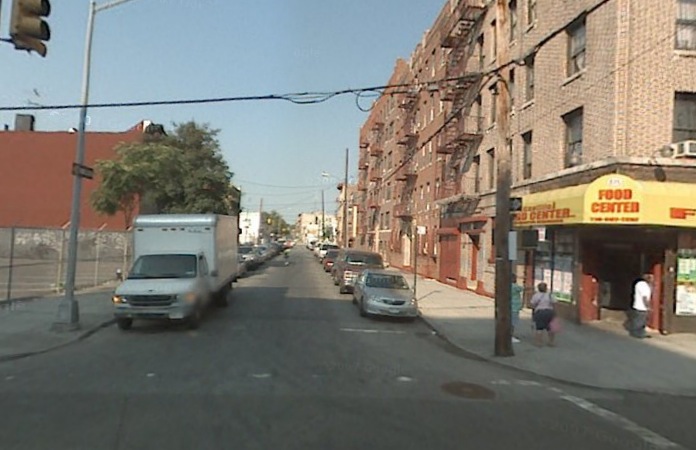
Parking minimums continue to stymie the creation of affordable housing in New York City, according to an architect who frequently designs those projects. When a rezoning suddenly put parking minimums in effect for an affordable housing project in the Bronx, Richard Ferrara of DeLaCour & Ferrara Architects was forced to cut apartments out of the building.
The HUD-sponsored project, located on Bathgate Avenue between 183rd and 184th Streets, was originally slated to be an 18-unit building. Under the zoning that used to govern the site, the parking minimums were low enough that fewer than five spaces were required, said Ferrara. With such a small number of required spaces, the project was eligible for a waiver, meaning it didn't need to build any parking at all.
In October, however, the area was classified as a "neighborhood preservation area" by the Department of City Planning in its Third Avenue/Tremont Avenue rezoning. The new zoning, known as R6A, carries slightly higher parking requirements for affordable projects [PDF]. "When we went down to an R6A," said Ferrara, "it put us in a position where we couldn't get the parking waived." In effect, the rezoning added parking requirements where there hadn't been any before.
Including the now-required parking in the project came at the cost of affordable housing. "We had to reduce the number of apartments. We wound up losing two apartments," said Ferrara.
In general, said Ferrara, parking minimums add to the cost of projects. "There's a cost implication," he said. "In some places you have to go into the cellar, it becomes more expensive."
Even though he reported that it's "not uncommon" to subdivide a project into smaller buildings in order to receive a waiver for each half, Ferrara said even that "is a cost item." If you subdivided a taller project to avoid parking requirements, you'd have to spend twice the money and space on elevators, he offered as an example.
Two affordable units are not, on their own, the difference between an affordable housing market and an unaffordable one. But if it's routine for parking requirements to cut 11 percent of the units out of other affordable projects, the impact would be substantial indeed. That's not a price worth paying for the dubious goal of making it easier and cheaper to drive in New York City.





